|
“In the name of the Father, the Son and the Holy Spirit.” This is how I begin all of my prayers; and it comes from a long tradition in Christianity. As Catholics, we usually accompany these words by making the Sign of the Cross with our hand. Why is this so important to our faith and to me personally? To begin, I suggest revisiting and praying the Nicene Creed as it is proclaimed at every Catholic Mass. This is our profession of faith. The Holy Trinity – three persons in one – is a mystery we mere mortals can scarcely understand, but it explains our identity as children of God. We are taught from the Old Testament that God the Father is the Creator, and He sustains all of the world. In the New Testament we are instructed that God the Son is our Savior, Jesus Christ – both divine and human in nature and whose behavior we strive to model. At Pentecost, as told in the Acts of the Apostles in the New Testament, we are shown that the Holy Spirit is imparted to each of us as the presence of God in us who gives us wisdom and boldness to act as we are taught by Jesus. The unity of these three divine beings in one God is a profound gift I believe in complete faith, and it helps me understand who I am in His Kingdom. I am a child of the Father who loved me into being together with my earthly mom and dad, I am redeemed by the body and blood poured out by Jesus His Son for all my failings, and I am aided constantly by the Holy Spirit to live and profess the Christian life in joy and exuberance! I like to think of myself as being a flesh and bone human with supernatural assistance (as long as I cooperate with the will of God)! That is a pretty amazing disposition to live out of. We read in the Old Testament’s books of the prophets that God promised a Messiah to save His people, and then in Matthew 1:2-16 the genealogy of Jesus is recorded and spiritually comes to include each of us, who through our baptism become sons and daughters of God. This is an earthly and divine bond like no other in all of creation. There is so much more to us human beings than our earthly bodies and this temporary space we inhabit. We are walking, talking, living, breathing messengers of God the Almighty, commissioned to share love and mercy to every other living being around us. We are flesh and bone, but we are also spirit and intellect. When in right relationship with our Lord, we are the dwelling place for God to move and work in and through us. Understanding our identity and praying for guidance to live it out in what we do and say is imperative to being a member of the Kingdom of Heaven. This knowledge and the grace and virtues that flow from accepting our mission gives us the power to bring life and healing and hope and joy to a hurting, confused, and broken world. So, if you are ready to accept the mission, be prepared to be filled to overflowing with the Holy Spirit and be equipped with all that is necessary to be a present day apostle! Several years ago, one of our young sons made a simple but beautiful bookmark for my husband as a gift. It was brightly colored and had the words: WORK FOR GOD! down the middle. This summarizes exactly what we are called to do and continues to be a great reminder as it sits in my husband’s Bible. The Holy Trinity is the foundation of all our Christian beliefs and it gives me great comfort knowing who I come from and who I belong to for time and eternity, even when I do not fully comprehend it. We can sing from the rooftops: “Holy Father, Holy Son, Holy Spirit, three we name Thee; while in essence only one, undivided God we claim Thee; and adoring bend the knee, while we own the mystery” (Holy God, We Praise Thy Name by Ignace Franz). To learn more about living as a missionary disciple, please click here.
1 Comment
It seems that each day we check the news to discover that another politician, producer, actor, or celebrity figure is being exposed for scandal or abuse. Many of those who have for years been hailed as the main influencers of public opinion, policy, and taste have in a stunningly short span of time lost support or credibility. Many of those who were on top of the world have been, we could say, deflated and dethroned. I have been pondering this lately as the Church prepares to celebrate the Solemnity of the Ascension of the Lord. Each Sunday in the Nicene Creed, we profess Christ’s ascension, “He ascended into heaven and is seated at the right hand of the Father.” The ascension is recounted at the beginning of the Acts of the Apostles (Acts 1:6-12). Theologically, we do not envision Jesus ascending like a balloon into the sky, but a king ascending a throne. The Feast of the Ascension celebrates the exaltation and enthronement of Jesus as King and Messiah at the right hand of God the Father in heaven. As many of us may be scientifically literate and democratically-minded citizens of the twenty-first century, we may think all this talk of thrones and kings and heaven may seem like it belongs to a world that has long passed away. But if our recent headlines have proven anything, what has not passed away is the perennial pursuit of power and our tendency to underestimate our willingness to use it in potentially harmful and self-aggrandizing ways. Power in and of itself is not an evil thing, and watching people fall publicly is not a cause for celebration. I think instead the present reality invites us to pause and reflect on—in light of God’s reality—the pursuit and exercise of power both in society and in our own lives. In truth, power is not something that belongs only to the powerful. Power exists across any human relationship: husband and wife, parent and child, teacher and student, boss and employee, and the list is endless. We are influenced vertically by our superiors and horizontally by our peers. Ideally, we work together to achieve the common good and common goals by sharing and exercising power in the right doses and ways. But I think if we’re honest, we all have our own way of being out of balance, tipping the scales. So, what does this all have to do with Jesus, who we call the All-Powerful One? As exalted King and Messiah, Jesus overthrows the love of power with the power of love. The Ascension is not a power grab that Jesus will use to control people and outcomes. Rather, we hear Jesus tell the disciples that once he has taken his seat on God’s throne, “you will receive power when the holy Spirit comes upon you, and you will be my witnesses in Jerusalem, throughout Judea and Samaria, and to the ends of the earth” (Acts 1:8). As disciples, we are not separated from Christ by a glass ceiling. Yet as disciples, we have to be careful where and how we exercise this power given to us in the name of Jesus. One of the images in Scripture of the Holy Spirit is fire. It is a great metaphor for power. Our stewardship of God’s power can bring light and warmth, yet it can also burn if used irresponsibly. I suspect today that much of what compromises our evangelizing message of Jesus’s kingship stems from the ways Christians have abused earthly power in the name of God. The Gospel and St. Paul preach a radically different alternative: the conviction that our human exercise of power more fully manifests Christ when it is surrendered than when it is wielded. So, I propose instead: What happens when we dare to profess Jesus enthroned and exalted, to receive the power of his Holy Spirit, and then lay it down in the service of the Gospel? Question for Reflection: How is Christ’s example of kingship and power different from what we see in the world? On Trinity Sunday, one cannot help but think of a common greeting heard at Mass, “Let us begin as we wish to begin all things. In the name of the Father, and of the Son, and of the Holy Spirit. Amen.” How many times have we made the Sign of the Cross? Why do we begin Mass (indeed, every prayer) with the Trinity? Perhaps Trinity Sunday is the perfect day to ask, what does it all mean?
During a General Audience, Pope Francis remarked, “The Mass begins with the Sign of the Cross. The whole prayer moves, so to speak, within the space of the Most Holy Trinity…” Perhaps we should look at the actions of the Trinity to see what God has done for us and thus see the true power of those words. A favorite hymn sung on Trinity Sunday begins, “O God Almighty Father, Creator of all things, The Heavens stand in wonder, While earth Thy glory sings.” Everything, from the smallest pebble to the tallest mountain and every living creature in between, is the result of God’s generative power. As the Catechism points out, “the totality of what exists depends on the One who gives it being” (CCC 290). And so, when we begin “In the name of the Father,” we remind ourselves of the awesome power God has to create everything from nothing. The second verse of the hymn goes, “O Jesus, Word Incarnate, Redeemer most adored, All Glory, praise and honor, Be Thine, our Sovereign Lord.” St. Paul reminds us, “In him we have redemption by his blood, the forgiveness of transgressions, in accord with the riches of his grace” (Eph 1:7). By his death and resurrection, Christ opened the doors of heaven for the faithful. The third verse says, “O God, the Holy Spirit, Who lives within our souls, Send forth thy light and lead us to our eternal goal.” The Catechism states, “By virtue of our Baptism, the first sacrament of the faith, the Holy Spirit in the Church communicates to us, intimately and personally…” (CCC 683). It is by the Holy Spirit that the knowledge of our faith is revealed to us. And it is through the inspiration of the Holy Spirit that we are able to live out our faith in the hope of reaching heaven. One thing that should be noted when talking about the Persons of the Trinity, is that while the Father, Son, and Holy Spirit may be three distinct Persons, they are still of one nature. This is what we mean in the Nicene Creed when we say that Christ is “consubstantial with the Father”—they are distinct but are of the same substance. The Father, Son, and Holy Spirit are each wholly and entirely God. Many times, when we talk about the Trinity, we appropriate certain actions to each Person, i.e. God the Creator and Christ the Redeemer. This is fine, so long as we remember that the Father alone did not create, nor did the Son himself redeem. All actions are done in concert as one Triune God. On this Trinity Sunday, when we make the Sign of the Cross, let us do so remembering what that action reveals – that God created all things, that through Him the gates of heaven are opened to us, and that with Him our faith is revealed. And let us always sing the chorus of that hymn we used above: “O most Holy Trinity, Undivided Unity; Holy God, Mighty God, God Immortal, be adored.” Questions for Reflection: Is there a Person of the Trinity that you go to most frequently in prayer? How can you continue to build your relationship with each Person of the Trinity? Victor David is a collaborator with the Catholic Apostolate Center and a staff member at The Catholic University of America in Washington, DC. “See, I am sending an angel before you, to guard you on the way and bring you to the place I have prepared. Be attentive to him and obey him.” -Exodus 23:20-21 I grew up having a devotion to angels, especially the archangels Gabriel, Raphael, and Michael, whose feast we celebrate tomorrow. Because my sister was born on this feast, my parents gave her the middle name Gabriela in honor of my mother and of the Archangel Gabriel – messenger of Good News. When I was a child, my mom often mentioned Raphael the Archangel as one of her favorite saints. She had prayed to him as a single woman because of his role in the Book of Tobit in bringing together Tobias and Sarah. Because of his intercession, she said, she met and married my father. Throughout their marriage, a photo of St. Raphael has always hung in their bedroom. Our devotion to St. Michael was uttered each day as we asked for his protection and intercession in the St. Michael prayer. Because of my upbringing, I have come to know and love the angels as allies and friends. But what exactly is an angel? Are they ghosts, human beings with wings, or simply fairytales? In a morning meditation in 2014, Pope Francis urged us not to consider the Church doctrine on the existence of angels to be “a little imaginative.” Angels are real and active in the life of the Church and world today. “As purely spiritual creatures,” the Catechism writes, “angels have intelligence and will: they are personal and immortal creatures.” (CCC330). The Church’s teaching on the existence of angels comes from Scripture and Tradition. Angels are the result of God’s creative work. When we say in the Nicene Creed that we believe in things both “visible and invisible,” we testify to the existence not only of physical creation, but also of spiritual creation. As servants of God, angels appear numerous times throughout Scripture in various roles and capacities. Angels guarded the Garden of Eden after the Fall of Adam and Eve, led the Israelites out of Egypt to the Promised Land, announced the birth of John the Baptist, appeared to St. Joseph in several dreams, and perhaps most notably, announced the birth of Christ to the Blessed Virgin Mary. Scripture also notes that the angels ministered to Jesus after his forty days of prayer and temptation in the desert at the beginning of his ministry, and that Christ was strengthened by an angel during the agony in the garden of Gethsemane. Not only did angels exist in Biblical times, but they are also present to each one of us every day. St. Basil the Great taught that "each and every member of the faithful has a Guardian Angel to protect, guard and guide them through life.” The Catechism reiterates this belief, stating, “From its beginning until death, human life is surrounded by their watchful care and intercession. Beside each believer stands an angel as protector and shepherd leading him to life." Angels, therefore, were created by God to praise and glorify him, as well as to serve as his messengers and our protectors, instructors, and allies. Our guardian angels are a gift from God to help each one of us achieve eternal life. As we read in Hebrews, "Are they not all ministering spirits sent forth to serve, for the sake of those who are to obtain salvation?” The beauty of their existence means that, as human beings, we are never alone. We journey through this life with a celestial companion who wills our good and helps us achieve sanctity. Pope John Paul II wrote that devotion to our guardian angels and the angels overall leads to two outcomes: gratitude to God and peace and confidence. As we know, growth in the spiritual life can be difficult on our own. Each day we are called to overcome many temptations and weaknesses, to be healed, to grow in virtue. In God’s generosity, he not only gave us the gift of the Church and sacraments to receive grace and strengthen us on our journey; he also gives us celestial help through the existence of angels. As we prepare to celebrate the Feast of the Archangels tomorrow, Pope Francis leaves us with pertinent and thought-provoking questions: “How is my relationship with my guardian angel? Do I listen to him? Do I say good morning to him in the morning? Do I ask him: ‘Watch over me when I sleep?’ Do I speak with him? Do I ask his advice? … We can answer this question today, each of us: how is our relationship with this angel that the Lord has sent to watch over me and accompany me on my journey, and who always sees the face of the Father who is in heaven?” — Pope Francis, Homily, October 2, 2015 Recently, I attended a marriage preparation weekend with my fiancé. We learned a lot about each other and grew in love and appreciation for one another, but something we discovered over the weekend was the difference in how we pray. We are both faith-filled people who serve the Church in a variety of ways, but we had never really thought about the ways we pray. We had especially never considered praying together as a couple…or so I thought. Over the weekend, the couples who shared their stories kept talking about prayer together, and it made me want to have that in our relationship, too. I thought about how my prayer life is full of journaling, talking with other faith-filled gal pals, reflection, song, and giving thanks. I learned that my fiancé’s prayer life was found primarily in the Mass and when he truly needed something. Then I thought about how we go to Mass together each week and make it the high point of the day. Turns out, we have been praying together this whole time—in the Mass! For us, going to Mass is not just something “to do” on Sundays, it’s the beginning of a new week with Christ in the Eucharist, living out His love for others through prayer and witness.
All this thinking about prayer got me asking: how many other ways are there to pray? Prayer is a funny thing. It’s not like math with a specific algorithm to follow in order to get the answer. Prayer is done by adults and children, men and women, healthy and sick, in good times and in bad, all across the world. Prayer is so diverse and can actually be simple to do. Our Catholic faith has provided us with prayers to say to God, songs to sing and listen to, quiet to listen for God’s voice, and a chance to meet him in the Eucharist at Mass. Jesus himself taught his disciples to pray when they asked him, and he left us the Our Father as a result (Matthew 6: 9-13). He wanted us to teach others these words because they cover everything you might need to say. Jesus said, “This is how you are to pray: Our Father in heaven, hallowed be your name, your kingdom come, your will be done, on earth as in heaven. Give us today our daily bread; and forgive us our debts, as we forgive our debtors; and do not subject us to the final test, but deliver us from the evil one.” Through these few words, we can become closer to God and more dedicated to living the Gospel each day. Jesus also left us with the Mass. Mass is the place where my fiancé and I first began our relationship, the place we will continue to go on a regular basis together, and where our future children will experience the presence of Christ in the Eucharist. For those who may not be familiar with the structure of the Mass, it is separated into two major parts: the Liturgy of the Word and the Liturgy of the Eucharist. Within these two parts, there are various prayers and belief statements like the Responsorial Psalm and the Nicene Creed. The “source and summit of Christian life” is the Eucharist, and it comes after we have heard the Word, or the scripture readings (Lumen Gentium, 11). Together, these two parts help us become witnesses of the faith and of God’s love for others. For some, Mass is not where they experience deep prayer and closeness to Christ like my fiancé does. Some feel close to Christ in nature and through wonder and awe. Some find God in the quiet reflection of their day. Others pray each day with a Rosary, Liturgy of the Hours, or other conventional prayers. Personally, I like to switch up my prayer routine and experience different forms of prayer. Prayer is amazing because we have so many ways we could pray and yet, no matter which way we choose in that special moment, we are still opening our hearts to God. In prayer, we are creating a connection with God. This is such a complex concept, talking with our Creator, but so simple to do! Let us close in a simple but powerful prayer: Glory be to the Father, and to the Son, and to the Holy Spirit, as it was in the Beginning, is now, and ever shall be, world without end. Amen. Question for Reflection: What are a few ways to incorporate communal prayer into your spiritual routine? If you are in a relationship with a significant other, reflect upon what ways you pray together. Click here for more resources on Prayer and Catechesis. Working in parish ministry can be extremely rewarding, however, it can also become consuming and drain you spiritually, physically, and emotionally. We live to serve, love to create and often times find ourselves at the battlefront of spiritual warfare. Take a moment to ask yourself honestly, “Am I taking time to replenish myself?” It can be difficult to take a step back and focus our time and energy on our own revitalization. We get so used to giving of our time and ourselves to the work of the church that we may feel guilty if we turn those energies on ourselves. We all know the physiological and psychological benefits of exercise. Is it possible to reap a spiritual benefit? 1 Corinthians 6:19 states that our body is not our own. I am a firm believer that degradations of the soul and body affect one another. 1 Corinthians 6:13 teaches us that the body is for the Lord and the Lord is for the body. Although the health of our interior spiritual life should always take precedence over everything, I urge you to keep the health of your corporal life, your bodily life, a close second. In both the Nicene and Apostle’s Creed, we profess a belief in the resurrection. But do we live out that belief? Our salvation story as the adopted sons and daughters of Christ is not over yet, including the story of our loved ones that have fallen asleep in Christ. We believe in a second coming. We believe that when this earth passes away, we will be united, body and soul, into heaven if we have attained sanctification. We, as the body of Christ and communion of saints, are still in this together. Do we continue to pray for the dead outside of Mass? Do we implore the saints and angels for help and intercession? Do we offer daily mortifications and prayers for the salvation of souls? What about ourselves? We just recently celebrated All Saints Day and All Souls Day. I would like to present a challenge to you. Regardless of whether you are a disciplined exerciser, just beginning, or struggling to get back into the habit, turn your intention and your purpose to the salvation of souls. Schedule this time into your day just as you would an appointment or your personal prayer time. When you take your walk, follow your workout DVD, lift weights, go swimming, whatever medium you choose for your exercise, mentally offer this sacrifice of your time, energy, and focus for the salvation of souls. When you feel like there are one thousand other things you should be doing with your time, remember why you scheduled it. When you start to get tired during your workout say to yourself, “Lord Jesus have mercy on me and all souls in purgatory.” Uniting the discipline of our exercise with a prayer intention as powerful as the salvation of souls, strengthens your body and mind so that you can better carry out your calling on this earth. Through this purposeful action, you are also imploring God to grant relief to the poor souls in purgatory. So my fellow ministers, yes, give of yourselves unceasingly but be aware of the ways that we can still give of ourselves while nourishing, strengthening, and reenergizing our body so that we are better focused and able to carry out our calling on this earth so that when our day of judgement comes we can hear the sweetest of phrases uttered from the lips of our Savior, Matthew 25:23 “Well done my good and faithful servant.” 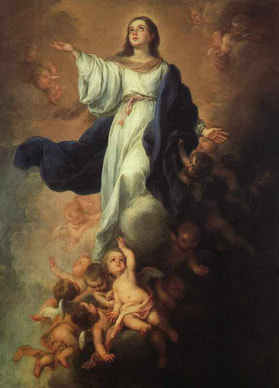 On November 1, 1950, Pope Pius XII issued the Apostolic Constitution Munificentissimus Deus (The Most Bountiful God) which declared “the Immaculate Mother of God, the ever Virgin Mary, having completed the course of her earthly life, was assumed body and soul into heavenly glory.” In doing so, Pope Pius defined for all time that the Assumption is a belief of the Catholic faith (cf. CCC, 966). And though the decree itself is only sixty-four years old, it succinctly shows that the belief spans all the way back to the beginnings of the Christian tradition. But what are the implication of this teaching and its feast day for the everyday faithful? First of all, it further illustrates Mary’s importance not only for Catholics but also for all mankind. This feast is but another way in which the Church honors the vessel that brought the Messiah into the world. It is through Mary that the human race received its savior. Therefore, one can see her Assumption into Heaven as a beautiful gift given to her by God. After living a truly exemplary life of faithfulness and love, God saw fit to bring her body and soul into paradise where, as PopePius puts it, “as Queen, she sits in splendor at the right hand of her Son, the immortal King of the Ages.” The Virgin’s Assumption, however, is also a gift to the faithful.The Holy Father writes, “while the illusory teachings of materialism and the corruption of morals…threaten to extinguish the light of virtue and to ruin the lives of men by exciting discord among them, in this magnificent way all may see clearly to what a lofty goal our bodies and souls are destined.” Mary was the first disciple of Jesus; she was the perfect disciple of Jesus. At the Wedding at Cana, she tells the servers, “Do whatever He tells you.” This is the same kind of trust all the faithful should try and emulate. And, after living a model life, she was gifted with her body and soul being brought up to Heaven. That is exactly the same hope that all Catholics (should) share. The Nicene Creed sums it up quite well: “He will come again in glory to judge the living and the dead and his kingdom will have no end…I look forward to the resurrection of the dead and the life of the world to come.” Catholics believe that at the end of time itself, when Christ comes to “render to each man according to his works, and according to his acceptance or refusal of grace,” all the dead will be resurrected (cf. CCC, 682). Those who enter Heaven will be restored, body and soul, to the gloried beings they were always meant to be before the Fall. Thus, the Assumption of Mary is not just a one-time occurrence, but rather a foretaste of what will happen at the end of days. It was not only a gift to the Blessed Mother, but also a gift to mankind. Humanity received a glimpse into what lies ahead for those who follow the example of a woman who put her whole heart, her whole faith, and her whole being into the care of a man she knew as her son and the Son of God. Victor David is a Collaborator with the Catholic Apostolate Center and is a staff member at The Catholic University of America, his alma mater, in Washington, D.C. He is a member of the Catholic University Knights of Columbus. |
Details
Archives
July 2024
Categories
All
|
About |
Media |
© COPYRIGHT 2024 | ALL RIGHTS RESERVED

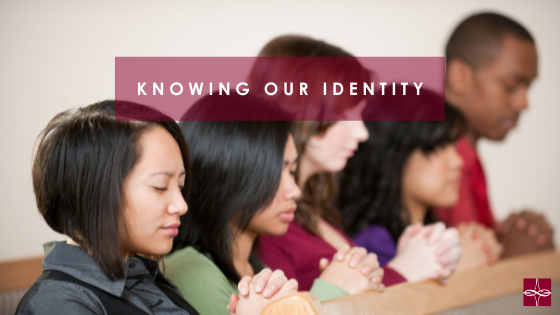

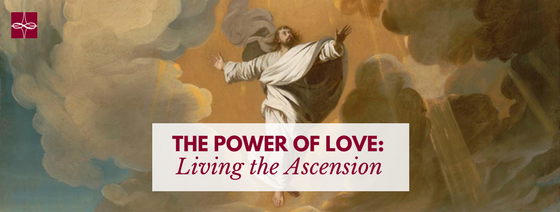

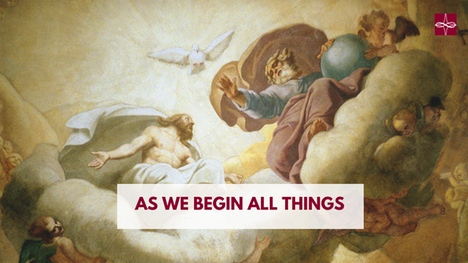
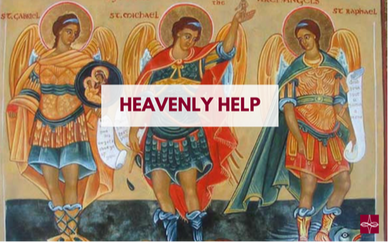

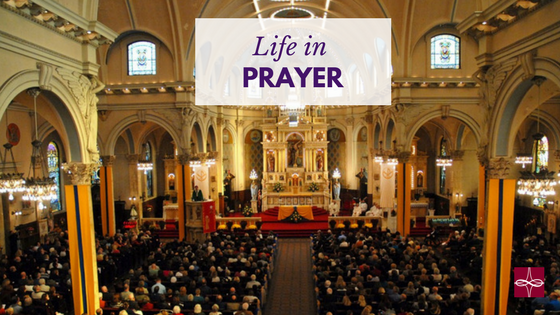

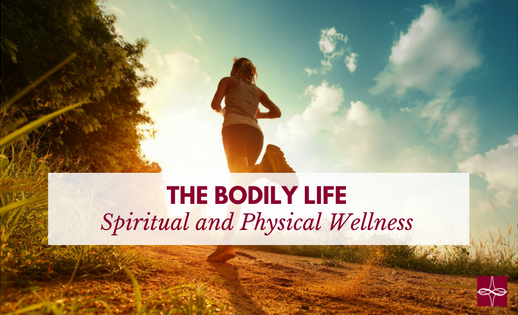

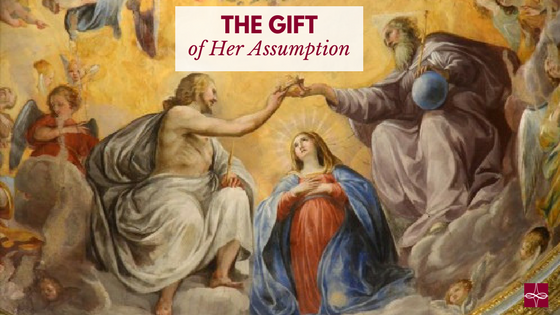
 RSS Feed
RSS Feed